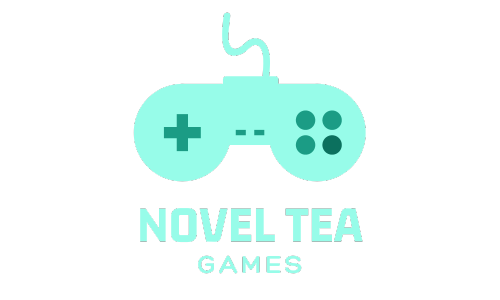Social media has become an integral part of daily life for many teens. Platforms such as Instagram, TikTok, and Facebook offer an easy way to connect with friends, share experiences, and stay updated on the latest trends.
However, excessive and unregulated use of social media can pose significant risks to teenagers’ mental health, emotional well-being, and academic performance.
In this article, we’ll explore why limiting social media usage is crucial for teens and how it can lead to a healthier life.
Mental Health Concerns
Social media can adversely affect the mental health of teenagers. Constant exposure to idealized standards of beauty, success, and lifestyles can lead to feelings of inadequacy and low self-esteem. Teens often compare themselves to influencers and peers, causing pressure to meet unattainable expectations.
According to the Pew Research Center, 81% of U.S. teens use social media. This high usage puts a large portion of this age group at risk of anxiety, depression, and other health issues.
Among these platforms, Facebook is used by 38% of U.S. teens, according to Statista. A study by MIT Sloan found that college-wide access to Facebook resulted in a 7% increase in severe depression rates. It also reported a 20% increase in anxiety disorder rates, highlighting the significant role Facebook plays in worsening these mental health challenges.
Consequently, many parents are pursuing legal action against Meta, Facebook’s parent company, through the Facebook lawsuit.
TorHoerman Law reports that Meta is accused of using algorithms to produce addictive content, leading to social media addiction, depression, and other mental health concerns. Thousands of lawsuits have been filed against Meta and other social media companies over these issues.
Sleep Disruption
Many teens use social media late into the night, which can disrupt their sleep patterns. The emission of light from screens can disrupt the production of the sleep hormone melatonin, leading to challenges in teenagers’ ability to initiate sleep.
A study by the American Academy of Sleep Medicine found that 80% of U.S. adults lose sleep because of social media use. This percentage increases to 93% among young adults aged 18 to 25. Lack of quality sleep can negatively affect mood, cognitive function, and academic performance.
Addiction and Dependency
Social media platforms are designed to keep users engaged for as long as possible. The constant flow of content and notifications can create a sense of dependency, leading to addictive behavior.
A report by The Guardian highlights that nearly half of British teenagers feel addicted to social media. This concern arises amid growing calls for major tech companies to take responsibility for the impact their platforms have on users.
The findings stem from the Millennium Cohort study, which surveyed approximately 7,000 teenagers aged 16 to 18 about their social media use. The results showed that 48% of respondents agreed or strongly agreed with the statement, “I think I am addicted to social media.”

Notably, the issue seems more pronounced among girls, with 57% expressing this sentiment, compared to 37% of boys. This data adds to the growing body of evidence suggesting that many people feel they have lost control over their digital media usage.
Body Image Issues
Psychologists have pointed out the detrimental effects of social media on mental health and body image. According to Psychology Today, Facebook’s internal research found that one in three teenage girls struggling with body image issues reported that Instagram worsened their self-perception. Despite these findings, the company and other similar app developers have downplayed the potential harm to users’ body image in public.
Facebook’s internal research aligns with other reports that link social media engagement with negative body image. Psychologists are increasingly concerned that social media introduces new pressures to achieve the “perfect” body, prompting users to engage in bodywork. When people compare themselves to idealized images on social media, they often experience negative body image. This can lead to issues such as disordered eating and other adverse outcomes.
Privacy and Security Risks
Teenagers may not always grasp the potential dangers of sharing personal information online. Inappropriate disclosure of private data can result in privacy breaches, identity theft, or unwelcome attention from strangers, posing risks to their safety and security.

By curbing social media usage, teens can be guided to share content more thoughtfully and develop habits that prioritize privacy and security. Limiting time spent on social media can also give them the space to reflect on the information they share.
FAQs
What Is The Facebook Lawsuit?
The Facebook lawsuit is a legal action against Meta Platforms, Inc. (formerly Facebook, Inc.) and its related platforms. The lawsuit alleges that the company intentionally designed its social media algorithms to produce addictive content. This design has purportedly led to social media addiction, depression, and other mental health issues among users, especially young people.
What Are The Main Claims In The Lawsuit?
The lawsuit alleges that Meta intentionally designed its social media platforms to be addictive. It also claims that the company failed to adequately protect users, particularly minors, from the harmful effects of excessive use. This includes accusations of exploiting users’ psychological vulnerabilities and manipulating them through algorithms.
What Outcomes Are The Plaintiffs Seeking?
The plaintiffs in the Facebook lawsuit are seeking compensation for damages resulting from the company’s practices. They are also pushing for changes to Meta’s social media platforms to improve safety for all users, especially young people. This could include stricter age verification and limits on the type of content shown to minors.
In conclusion, while social media helps teens stay connected and access information, setting limits on its use is important for their well-being. Establishing boundaries can help ensure a healthier relationship with social media and promote overall well-being.
Parents and guardians can actively guide and monitor social media use. This support helps teens achieve a healthy balance between their online and offline activities. This balance can lead to improved mental health, better academic performance, and overall well-being.
Encouraging offline hobbies and face-to-face interactions can further enrich teens’ lives and protect them from the potential risks associated with excessive social media use.

